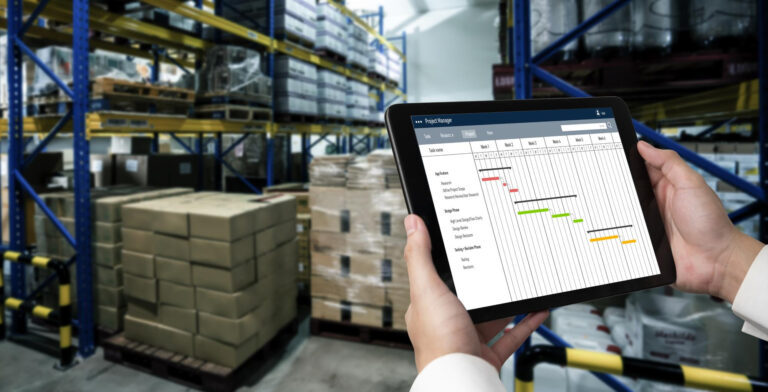The Benefits of Using Odoo Manufacturing & Distribution Solution for SMEs

Small and Medium Enterprises (SMEs) in the manufacturing and distribution sectors often face challenges such as inventory management, production planning, and supply chain coordination. Traditional methods or outdated software can lead to inefficiencies, increased costs, and delays. This is where Odoo Manufacturing & Distribution Solution comes in—a comprehensive, modular ERP system designed to streamline operations, increase productivity, and improve decision-making.
In this article, we will explore the key benefits of using Odoo for SMEs, including an in-depth analysis of its features, a comparison table, and answers to frequently asked questions.
Key Benefits of Odoo Manufacturing & Distribution Solution

1. End-to-End Integration
Odoo provides an all-in-one solution that integrates various business processes, including manufacturing, inventory, sales, purchasing, and accounting. Unlike standalone software that requires multiple integrations, Odoo’s ecosystem ensures smooth data flow across departments.
- Manufacturing Module: Streamlines production planning, work orders, and Bill of Materials (BoM).
- Inventory Management: Real-time tracking, multi-warehouse support, and automated stock replenishment.
- Sales & CRM: Integrated with order processing, customer tracking, and invoicing.
- Accounting: Automates financial reporting, tax calculations, and budgeting.
2. Cost-Effectiveness for SMEs
Traditional ERP systems like SAP and Oracle are expensive and complex to implement. Odoo offers a cost-effective alternative with:
- Open-source flexibility: SMEs can choose free community versions or opt for affordable enterprise editions.
- Lower IT infrastructure costs: Cloud-based or on-premise options with minimal hardware requirements.
- Scalability: Start with essential modules and expand as the business grows.
3. Automation and Efficiency
Odoo helps SMEs automate repetitive tasks and reduce manual errors, leading to increased efficiency.
- Automated Workflows: Reduces paperwork and manual data entry.
- Smart Scheduling: Optimizes production schedules to prevent delays.
- AI & Machine Learning: Forecast demand and optimize inventory levels.
4. Improved Inventory & Supply Chain Management
Odoo’s inventory and supply chain tools ensure real-time visibility and control over stock movement.
- Barcode Scanning: Faster and error-free inventory tracking.
- Automated Procurement: Generates purchase orders when stock levels are low.
- Multi-Location Warehousing: Supports multiple warehouses and locations.
5. User-Friendly Interface and Accessibility
Unlike complex legacy ERP systems, Odoo features an intuitive interface, making it easier for SMEs to adopt.
- Mobile-Friendly: Access dashboards and reports from any device.
- Drag-and-Drop Customization: Modify workflows without coding expertise.
- Role-Based Access Control: Ensures secure data access.
6. Data-Driven Decision Making
Odoo provides SMEs with real-time business insights through advanced reporting and analytics.
- Custom Dashboards: Track KPIs, sales performance, and financial reports.
- AI-Powered Insights: Predict trends and optimize operations.
- Integrated Business Intelligence: Generate reports across multiple departments.
7. Seamless E-commerce & B2B Integration
For SMEs involved in online sales, Odoo integrates seamlessly with e-commerce platforms like Shopify, WooCommerce, and Amazon.
- Omnichannel Sales: Manage retail, wholesale, and online sales in one platform.
- Automated Order Processing: Streamlines fulfillment and shipping.
- CRM Integration: Enhances customer engagement and loyalty.
Comparison Table: Odoo vs. Other ERP Solutions
| Feature | Odoo | SAP Business One | Oracle NetSuite | Microsoft Dynamic 365 |
| Cost | Affordable, flexible pricing | High upfront cost | Expensive subscription | Moderate pricing |
| Ease of Use | User-friendly, intuitive | Steep learning curve | Complex UI | Moderate complexity |
| Customization | Highly customize | Limited flexibility | Requires developer | Moderate customization |
| Integration | Seamless with modules | Requires add-ons | Complex integrations | Good integration |
| Scalability | Ideal for SMEs & growth | Best for larger firms | Suitable for enterprises | Good for midsize business |
| Cloud & On-Premise | Both options available | Cloud only | Cloud only | Both options available |
FAQs About Odoo Manufacturing & Distribution for SMEs
Is Odoo suitable for small businesses?
Yes, Odoo is specifically designed to be scalable, meaning small businesses can start with basic modules and expand as they grow.
How does Odoo compare to other ERP solutions?
Odoo offers a more affordable and flexible solution than SAP, Oracle, or Microsoft Dynamics. It is also easier to implement and customize.
Can I integrate Odoo with third-party applications?
Yes, Odoo supports API-based integrations with various software, including e-commerce, CRM, and accounting tools.
Is Odoo cloud-based or on-premise?
Odoo offers both cloud-based and on-premise solutions, allowing SMEs to choose the best option for their needs.
What are the implementation costs for Odoo?
Costs vary based on selected modules, number of users, and deployment options. The Community version is free, while the Enterprise version has subscription fees.
For SMEs in the manufacturing and distribution sectors, Odoo provides a cost-effective, user-friendly, and scalable ERP solution that enhances efficiency and decision-making. With its end-to-end integration, automation features, and advanced analytics, Odoo empowers businesses to streamline their operations and stay competitive.
🚀 Ready to Transform Your Business with Odoo?
Don’t let outdated systems slow down your business! Contact us today for a free consultation and discover how Odoo can revolutionize your manufacturing and distribution processes. Click here to schedule a demo now!





